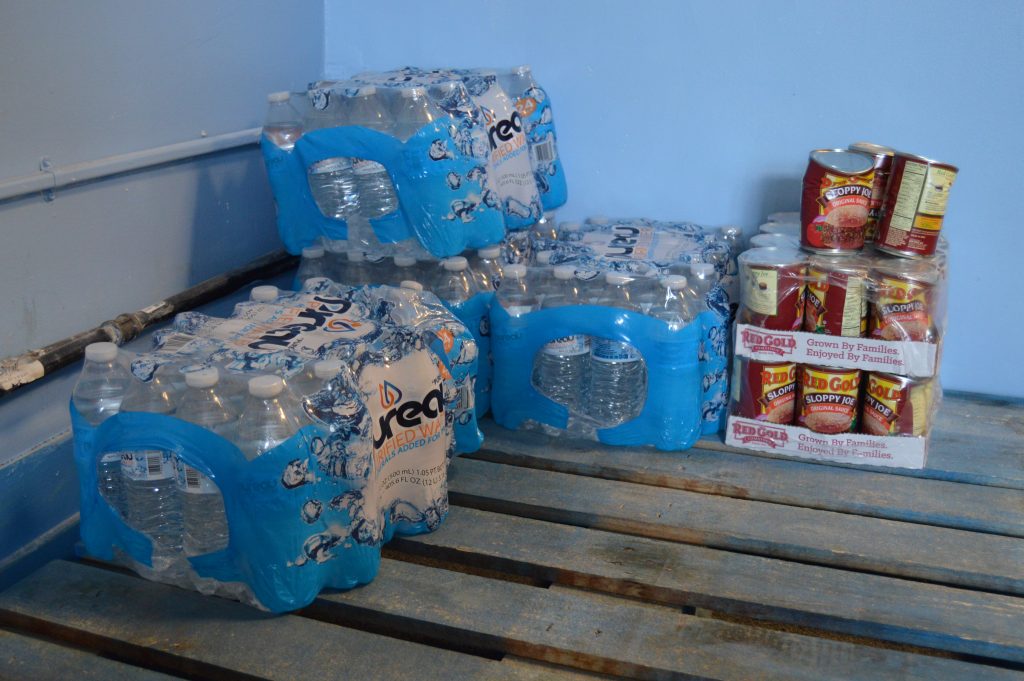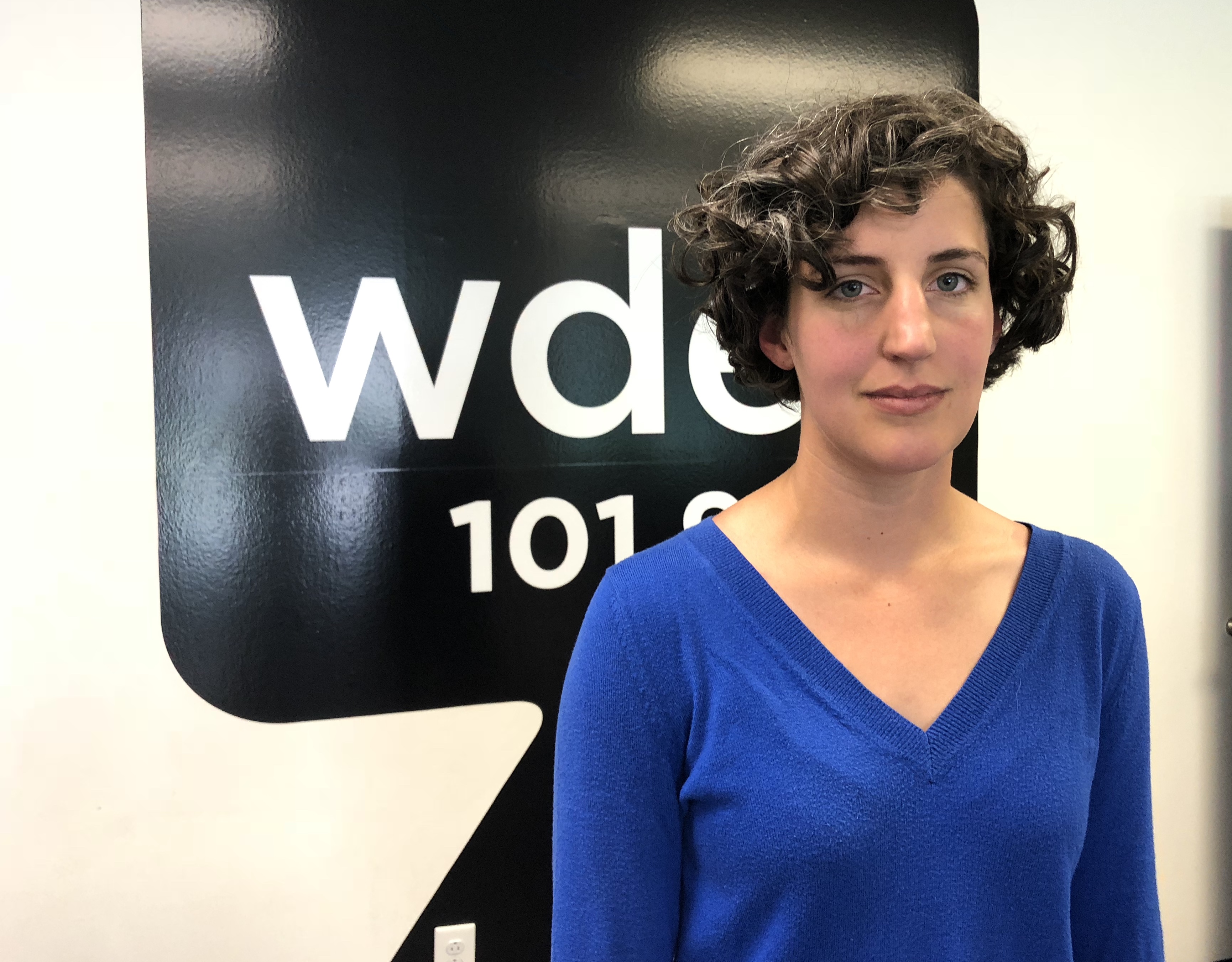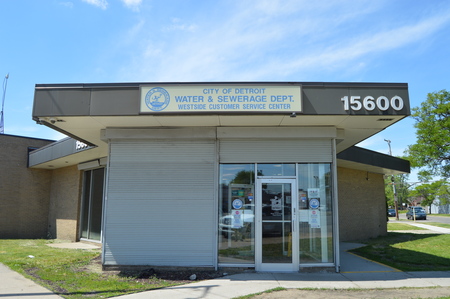In Search of Solution to Detroit’s Water Shutoffs, Could Philly Hold the Answer?
Philadelphia’s income-based water affordability program turns a year old this month. Activists want to know why we can’t replicate it here.


Reverend Roslyn Bouier opens a door at the Brightmoor Connection Food Pantry, where a single pallet of bottled water is stacked in the corner. There’s only a few cases left.
“This is where our water station is, and usually the water is up so high,” Bouier says pointing above her head. “I have a delivery coming this Wednesday.”
Bouier provides water to families who have had their water shut off or who are facing contamination issues. She gets the water from the activist group We the People of Detroit.
“As soon as the water comes in, the water is going out,” she says. “And so, it’s a hard process to keep up with. But we have to have the water here. These are the last four cases we have left.”
Bouier says demand for the water is highest now, after the first of the month, when shutoff notices come out from the Detroit Water and Sewerage Department (DWSD). She says the people who come for the water often carry a burden of profound shame, especially parents of small children.
“I’ll say to them, listen, it’s socioeconomics, just like being hungry is socioeconomics. It doesn’t make you bad person. It doesn’t mean you don’t love your kids. It doesn’t mean that you’re not trying. It means that you can’t make the ends meet.”

“This is a massive humanitarian crisis,” says Emily Kutil, an architecture professor at the University of Detroit Mercy. Kutil also researches and studies water shutoffs for We the People of Detroit.
Kutil echoes what the United Nations said in 2014, that the shutoffs in Detroit were “contrary to human rights.”
There have been more than 100,000 water shutoffs in Detroit since the city launched an aggressive campaign in 2014, according to Bridge Magazine.
The number of shutoffs for non-payment has decreased significantly since 2014. But activists and city officials alike say the number is still too high.
Since the height of the shutoffs, DWSD has implemented a program that provides assistance for residents with their water bills and has put thousands of customers on payment plans designed to help people keep their taps on.
The city credits that assistance program for reducing shutoffs by tens of thousands of households per year since 2014.

But Kutil says that’s not enough.
“It’s never going to be enough. It hasn’t been enough,” she says. “And it’s failing. It’s still failing. 18,000 households being shut off a year is failing.”
Kutil says there’s a possible solution out there. And it’s already in place in Philadelphia.
A year ago, that city implemented an affordability program that sets water rates based on household income. It’s a tiered system that allows the poorest residents to pay as little as $12 per month to keep their water on. The Tiered Assistance Program (TAP) is available to people within 150 percent of the federal poverty level.
Philadelphia’s Water Commissioner, Debra McCarty, says that plan makes a lot of sense for the city and its residents.
“The more folks paying water bills is always better. Whether it’s always a portion or the entire amount and not driving up the receivables by not paying anything. And we definitely see that allowing folks to stay in their homes and have water is better for the city – for sure.”
McCarty says it’s too early to appraise TAP’s success. The program has faced challenges, including failure to meet targets for signing up qualified residents. That problem is possibly related to another criticism of the program, that the application process is burdensome and decisions on approval or denial take too long.
But the thinking is that by having people pay a percentage of their income, they have a consistent bill every month and they’re more likely to be able to pay. And water customers who are signed up for the program will not face a shut off.
So, advocates in Detroit ask, why can’t we have that here?
DWSD officials say it may actually be illegal.

“The jury is still out on whether or not that model will work in other places,” says DWSD Director Gary Brown. “I know this, it’s not going to work in Michigan until there’s some legislation that changes the legal framework that utilities have to work under regarding the rates.”
Brown says Michigan’s constitution prohibits utilities like DWSD from implementing an affordability program that sets rates based on income like the TAP program in Philly. He says he wants the state to change that policy to give utilities more options to deal with these programs.
But amending the state constitution is a heavy lift. And Brown has other concerns about programs like TAP.
Philadelphia officials admit it has cost the city millions of dollars to implement the program, and millions more lost in revenue. Those costs are placed on other water customers. Brown worries higher water bills for everyone else would especially harm working-poor Detroiters.
Meanwhile, advocates continue to call for an immediate moratorium on shutoffs.
